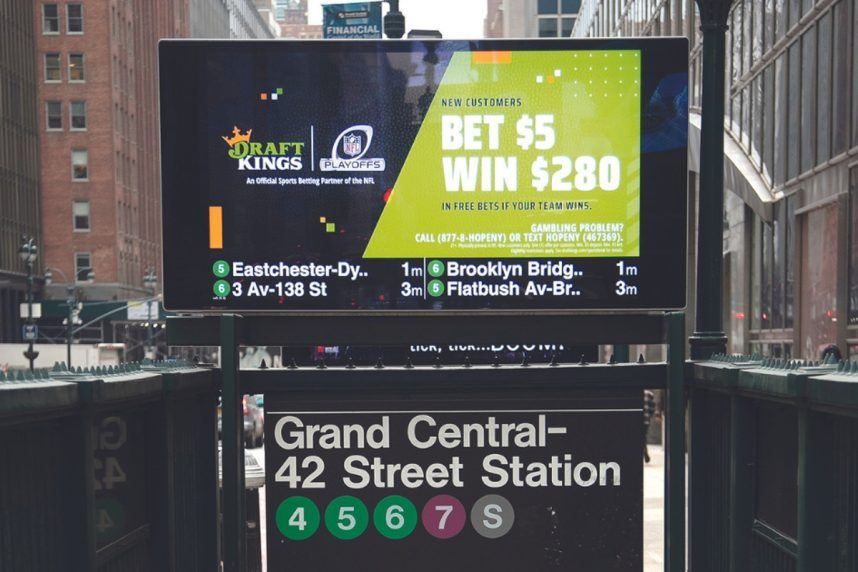Gambling
New York Gaming Bill to Strengthen Advertising Safeguards

Posted on: June 5, 2024, 10:12h.
Last updated on: June 5, 2024, 10:19h.
The New York Senate wants to force casinos and sportsbooks to include more responsible gaming messaging and warnings about possible addiction in their advertisements.

The state Senate in Albany late last month unanimously passed legislation that would amend New York’s regulations on gambling adverts. The statute would also apply to racinos, parimutuel wagering businesses, fantasy sports, and video lottery venues.
The New York Senate passed Senate Bill 1550 on May 30 by a 57-0 vote. The statute has since moved to the Assembly, but the 2024 legislative session is approaching its culmination. The State Legislature is scheduled to adjourn for the year as of Thursday, June 6.
The Assembly version of the measure is Assembly Bill 1118. The bill would require “all advertisements for gambling and sports betting to include warnings about potential harmful and addictive effects of gambling.”
Regulatory Safeguards
The full New York Senate, aside from Sen. James Sanders Jr. (D-Brooklyn) who was absent from the vote, believes the state’s gaming interests should be required to present the risks of the products they offer not unlike tobacco.
SB1550/AB1118 would task the New York State Gaming Commission to “cooperate” with the New York Office of Addiction Services and Supports to develop clear messaging about gaming risks and highlight the state’s problem gambling hotline — 1-877-8-HOPENY. The legislation would also require the gaming commission to make available on its website information and technical support of the advertising guidelines.
Other gaming bills facing Thursday’s legislative deadline include Senate Bill 9236, which would require 1% of the sports betting tax received by the state to be directed toward problem gambling treatment programs. Another 2% would go to youth sports.
Another bill, Senate Bill 9044, would raise the minimum age to participate in fantasy sports from 18 to 21. Both of those bills, however, remain in Senate committees and are likely dead for 2024.
State Sen. Joseph Addabbo (D-Queens), who chairs the Senate Committee on Racing, Gaming, and Wagering, also saw his push to legalize iGaming fail to materialize in 2024.
Federal Lawsuit Persists
New York lawmakers’ efforts to place more guardrails on gambling advertisements came after a Bronx resident earlier this year filed a proposed class-action lawsuit against DraftKings for alleged deceptive advertising practices.
Plaintiff Samantha Guery claims in a federal lawsuit filed in New York’s Southern District Court that DraftKings’ use of “risk-free” language deceived consumers into wrongly assuming they had no financial risk in signing up with the online sportsbook and making an initial bet. Guery’s attorneys allege that DraftKings failed to properly disclose that the “$1,000 Risk-Free Bet” offered would be returned as credits that could only be used to further bet, and could not be immediately cashed out.
Such sports betting advertising wording has since been banned by gaming regulators in several states, but not New York. The New York Gaming Commission on its website clarifies how supposedly risk-free promotions are to work.
“Risk-Free Bets are when a patron receives the amount of a wager in free bets or site credits if the wager loses. These promotions are typically used as sign-up offers and are designed to incentivize customers to an operator platform,” the commission website reads. “Bettors typically use a promotional code during sign up, place their first wager, and, if that wager loses, are refunded the amount in free bets or site credit.”









